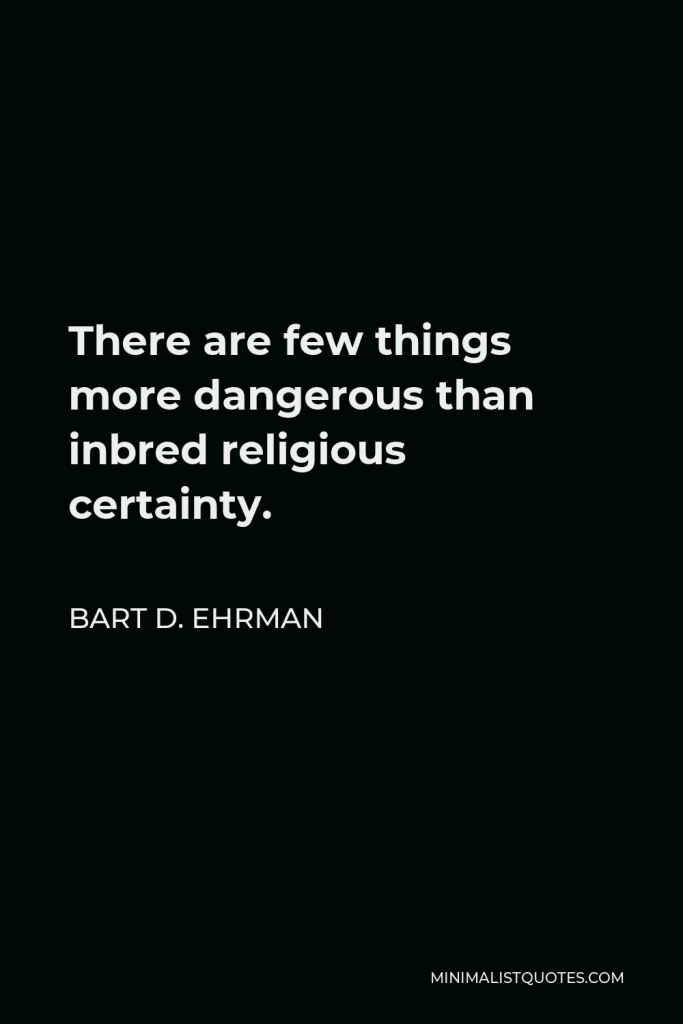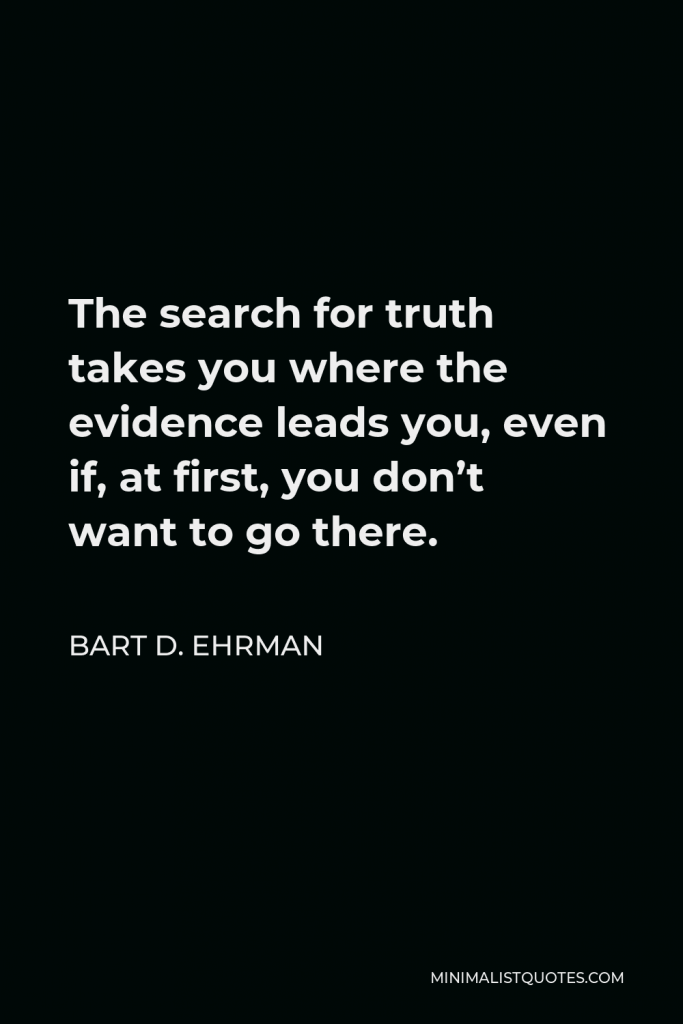As time goes on, thing do get made up.
BART D. EHRMANAs time goes on, thing do get made up.
More Bart D. Ehrman Quotes
-







-







Jesus existed, and those vocal persons who deny it do so not because they have considered the evidence with the dispassionate eye of the historian, but because they have some other agenda that this denial serves.
BART D. EHRMAN -






I have such a fantastic life that I feel an overwhelming sense of gratitude for it. . . . But I don’t have anyone to express my gratitude to. This is a void deep inside me, a void of wanting someone to thank, and I don’t see any plausible way of filling it.
BART D. EHRMAN -







Far and away the most changes are the result of mistakes pure and simple slips of the pen, accidental omissions, inadvertent additions, misspelled words, blunders of one sort or another.
BART D. EHRMAN -







In the entire first Christian century Jesus is not mentioned by a single Greek or Roman historian, religion scholar, politician, philosopher or poet.
BART D. EHRMAN -







Everything we hear and see we need to evaluate—whether the inspiring writings of the Bible or the inspiring writings of Shakespeare, Dostoevsky, or George Eliot, of Ghandi, Desmond Tutu, or the Dalai Lama.
BART D. EHRMAN -







There are few things more dangerous than inbred religious certainty.
BART D. EHRMAN -







Traditionally in Christian circles, Judas in fact has been associated with Jews. Of being traitors, avaricious, who in fact, betray Jesus, who are Christ-killers. And this portrayal of Judas of course also leads then to horrendous acts of anti-Semitism through the centuries.
BART D. EHRMAN -







In Matthew, Jesus declares, “Whoever is not with me is against me.” In Mark, he says,“Whoever is not against us is for us.”
BART D. EHRMAN -







You can’t believe something just because someone else desperately wants you to.
BART D. EHRMAN -







Did he say both things? Could he mean both things? How can both be true at once? Or is it possible that one of the Gospel writers got things switched around?
BART D. EHRMAN -






The problem then with Jesus is that he cannot be removed from his time and transplanted into our own without simply creating him anew
BART D. EHRMAN -







I don’t know anyone who is a responsible historian, who is actually trained in the historical method, or anybody who is a biblical scholar who does this for a living, who gives any credence at all to any of this.
BART D. EHRMAN -







The search for truth takes you where the evidence leads you, even if, at first, you don’t want to go there.
BART D. EHRMAN -







Different authors have different points of view. You can’t just say, ‘I believe in the Bible.
BART D. EHRMAN -






His name never occurs in a single inscription, and it is never found in a single piece of private correspondence. Zero! Zip references!
BART D. EHRMAN







